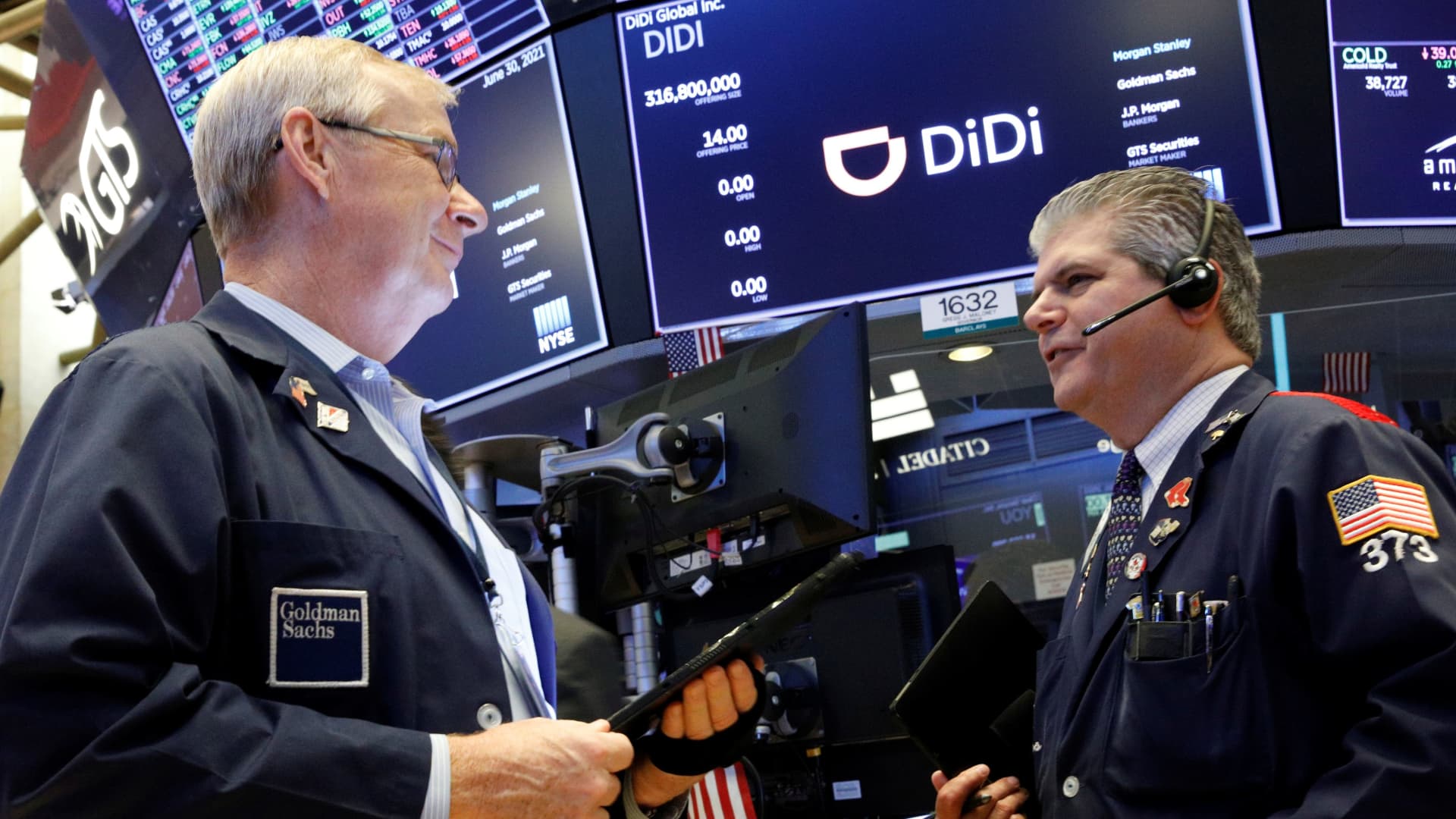Chinese listings overseas getting complicated despite growing interest, says NYSE’s Ge


Traders work during the IPO for Chinese ride-hailing company Didi Global Inc on the New York Stock Exchange (NYSE) floor in New York City, U.S., June 30, 2021.
Brendan McDermid | Reuters
There is strong appetite among Chinese companies to list on U.S. stock exchanges, but these IPOs have become a more complicated process, according to Kobe Ge, the head of China at the New York Stock Exchange.
Despite the negative impact last year from Covid-19 restrictions and U.S. regulatory uncertainty, many of those issues are now resolved and “we still see very strong interest from Chinese businesses for listing in the U.S.,” he told CNBC’s East Tech West conference in the Nansha district of Guangzhou, China, on Tuesday.
But they’re not so familiar with the procedures, which have proved to be more challenging of late, he added. That’s according to a CNBC translation of his Mandarin-language remarks.
“Previously, listing in the U.S. was relatively easy,” Ge said, noting it would take just four-and-a-half or five months for Chinese firms to complete a U.S. IPO.
“Given some new procedures, a company may need to spend more time, a 12-month preparation period,” he said, pointing to new rules from the China Securities Regulatory Commission.
The new measures, effective since March 31, lay out a filing process for domestic companies wanting to list in the U.S. or Hong Kong, and require them to comply with national security measures and the personal data protection law before going public overseas.
Amid a tepid U.S. IPO market, the handful of Chinese names that have been able to list this year have mostly been smaller companies.
Rising political tensions between Washington and Beijing have also led to uncertainty among Chinese companies and investors, said Ge.
U.S. President Joe Biden signed an executive order in August aimed at regulating new U.S. investments and expertise that supports China’s development of sensitive tech. The new measures, which is expected to be implemented next year, targets investment in semiconductors and microelectronics, quantum computing and certain artificial intelligence capabilities.
“Of course, specifics haven’t been released yet, everyone may be watching and waiting, so it may cause investors to wait and see regarding these changes,” Ge said.
Strong IPO pipeline
Still, Ge remained bullish that Chinese listings in overseas markets will rebound so long as domestic firms focus on building a strong business.
He likened the situation to a ship at sea. “Of course, everyone must pay attention to the weather, and at the same time they should pay more attention to whether the ship has been built well,” he said.
Today, that means investors are looking more for mature business models and predictable profits, rather than just high growth, he said. “So you need to build a very good ship.”
The overall U.S. IPO market should also improve in the April to October period next year, Ge said.
Robert H. McCooey, Jr., a vice chairman at Nasdaq, shared a similar view underlining there’s a strong pipeline of Chinese companies that intend to list on the exchange soon.

“I think it is 116 right now, that are on file or that we know will be filing soon,” he told a separate session at CNBC’s East Tech West event.
“And the much more interesting aspect of it is now with the new process by CSRC … everyone in China, everyone around the world gets to see the companies that are in the process, because the way that the regulations have come through,” he added, referring to the China Securities Regulatory Commission.
This is a marked increase from the 65 Chinese companies, McCooey highlighted in an earlier CNBC interview in June.
As of January 2023, there were 252 Chinese companies listed on the U.S. exchanges — including NYSE, Nasdaq, and NYSE American, — with a total market capitalization of $1.03 trillion, according to official data.
“We’re delighted that we’ve had a couple of listings that have gone through the CSRC process … there’s three or four that should be approved in the near future,” he added. “I think that gives confidence to companies that are interested in listing outside of China.”









